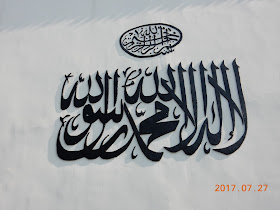作者:趙令志、 鮑洪飛、劉軍主編;趙令志譯.
本書第一次對涉及雍和宮的滿文歷史檔案、文獻作了系統的翻譯梳理,這批滿文檔案,涉及僧俗各類事務,將其翻譯整理,既對研究清代的民族、宗教政策有較高學術價值,亦對目前我國之宗教事務管理及對雍和宮保護維修、佛事活動等方面,具有重要的參考價值。雍和宮檔案譯稿是該領域翻譯研究的傑作和精品,其信、達、雅之妙不同凡響,其歷史價值、學術價值等不可限量。雍和宮作為北京地區的重要標誌之一,在1983年被國務院確定為漢族地區佛教全國重點寺院。
趙令志,1964年7月生於內蒙古赤峰市。1987年7月入中央民族學院研究生部,讀中國民族史碩士研究生。2007年,為中央民族大學歷史系教授、博士生導師。郭美蘭,中國第1歷史檔案館編研處研究員,曾翻譯滿文檔案《軍機處滿文準噶爾使者檔》,與趙令志教授合著《準噶爾使者檔之比較研究》。
目錄
1.內大臣海望傳著揀員管理雍和宮事務等之上諭雍正九年十月十七日
2.和碩莊親王傳著雍和宮二等侍衛侉色教練內府佐領兵丁之上諭雍正九年十二月初二日
3.著雍和宮頭等侍衛勞格補放鄭各莊城守尉之上諭雍正十年八月二十一日
4.和碩莊親王奏聞修繕柏林寺所需銀仍支領雍和宮銀兩應用事折雍正十一年六月初七日
5.西寧辦事大臣馬爾泰等奏聞派員護送果莽寺敏珠爾呼圖克圖進京事折雍正十二年三月十九日
6.大學士鄂爾泰等奏聞西寧辦事大臣馬爾泰派員護送果莽寺敏珠爾呼圖克圖進京事片雍正十二年四月初二日
7.大學士鄂爾泰等奏聞西藏送京喇嘛隨班禪額爾德尼使者業已起程片
雍正十二年六月十九日
8.侍郎馬爾泰等奏聞料理噶勒丹錫哷圖呼圖克圖自西寧起程前往京師折
雍正十二年六月二十四日
9.總管內務府奏請嵩祝寺番經廠佛像開光所需物件於何處開銷事折
雍正十二年十二月十五日
10.郎中黑德等來傳飭營造司以將海望所建房屋一座辟作藏經館事行文雍和宮
雍正十三年閏四月初一日
11.總管內務府為雍和宮後佛樓新添小道童等錢糧事致各該處劄付
雍正十三年閏四月二十三日
12.和碩莊親王奏聞議覆大行皇帝梓宮奉移雍和宮折
雍正十三年八月二十四日
13.著將御前侍衛富努監禁百日釋服之後再行請旨之上諭
雍正十三年八月二十七日
14.郎中楊作新傳大臣海望飭揀員照料雍和宮修繕工程文
雍正十三年八月二十八日
15.管理總管內務府事務和碩莊親王允祿等奏請釋服之日照例令噶勒丹錫哷圖呼圖克圖等於乾清宮念經事折雍正十三年九月初八日
16.管理總管內務府事務和碩莊親王允祿等奏聞梓宮奉移雍和宮簡派散秩大臣值守事折
雍正十三年九月初九日
17.管理總管內務府事務和碩莊親王允祿等奏請聖上前往雍和宮不必早去事折
雍正十三年九月十一日
18.宮殿監副侍李英差傳支給雍和宮太監等口糧事文
雍正十三年九月十一日
19.雍和宮值班內務府衙為調取蘇州織造海保履歷等事咨內務府文
雍正十三年九月十七日
20.雍和宮值班內務府衙為一併調取郎中海保等升補情形及其履歷事咨內務府文
雍正十三年九月十八日
21.宮殿監侍領侍蘇培盛差傳甯壽宮皇貴妃前往雍和宮著照例備辦車轎鞍馬事文
雍正十三年九月十八日
22.雍和宮值班內務府衙為回執入值內務府總管人員名單等情事咨內務府文
雍正十三年九月十八日
23.內務府為備辦甯壽宮皇貴妃等前往雍和宮及皇太后皇后等回宮所需儀仗等事致都虞司劄付
雍正十三年九月十八日
24.領侍衛內大臣為奏事郎中張文彬等傳諭聖上前往雍和宮並妥辦應備事宜事咨總管內務府文
雍正十三年九月二十日
25.雍和宮值班內務府衙為詢查世祖聖祖如何施恩奶母兩家等情事咨內務府文
雍正十三年九月二十一日
26.領侍衛內大臣為知照聖上前往雍和宮事咨總管內務府文雍正十三年九月二十二日
27.宮殿監侍領侍蘇培盛差傳為甯壽宮皇貴妃等前往雍和宮著照例備辦車轎鞍馬事文雍正十三年九月二十二日
28.宮殿監侍領侍蘇培盛差傳為皇太后皇后等前往雍和宮著照例備辦車轎鞍馬事文雍正十三年九月二十二日
29.領侍衛內大臣為奏事郎中張文彬等傳旨聖上前往雍和宮事咨總管內務府文
雍正十三年九月二十二日
30.總管內務府為皇后妃嬪前往田村仍照雍和宮例備辦車轎鞍馬事咨領侍衛內大臣文
雍正十三年九月二十四日
31.宮殿監侍領侍蘇培盛差傳為皇后妃嬪前往田村仍照雍和宮例備辦車轎等事文
雍正十三年九月二十四日
32.總管內務府為王大臣飭辦聖上前往雍和宮日賞沿途兵丁等飯食事致各該處劄付
雍正十三年九月二十四日
33.總管內務府為派員替換備辦聖上前往雍和宮日賞沿途兵丁等飯食官員事致各該處劄付
雍正十三年九月二十四日
34.總管內務府為傳王飭辦賞神武門至雍和宮沿途兵丁飯食事致都虞司劄付
雍正十三年九月二十四日
35.總管內務府為傳王大臣等諭旨備辦聖上前往雍和宮沿途兵丁等飯食事致各該處劄付
雍正十三年九月二十四日
36.總管內務府為傳大臣等遵旨飭辦聖上前往雍和宮日賞沿途兵丁飯食搭建大棚事致都虞司劄付
雍正十三年九月二十四日
37.總管內務府為傳王大臣等差員飭辦賞神武門至雍和宮沿途兵丁飯食事致各該處劄付
雍正十三年九月二十四日
38.總管內務府為遣員照料聖上前往雍和宮日賞賜沿途兵丁做飯大棚事致各該處劄付
雍正十三年九月二十四日
39.總管內務府為遣員替換備辦聖上前往雍和宮日賞沿途兵丁做飯大棚官員事致各該處劄付
雍正十三年九月二十四日
40.領侍衛內大臣為聖上前往田村及雍和宮事咨總管內務府文
雍正十三年九月二十四日
41.總管內務府為派員備辦聖上前往雍和宮日賞沿途兵丁做飯大棚事致各該處劄付
雍正十三年九月二十四日
42.宮殿監侍領侍蘇培盛差傳皇后妃嬪前往田村所需馬匹照前往雍和宮例備辦事文
雍正十三年九月二十四日
43.總管內務府為照新定尺寸搭建做飯大棚事致都虞司劄付
雍正十三年九月二十五日
44.領侍衛內大臣為奏事郎中張文彬等傳旨聖上前往雍和宮獻供事咨總管內務府文
雍正十三年九月二十五日
45.值月鑲紅旗滿洲蒙古都統為上諭給奉移梓宮官兵加薪等情事咨總管內務府文
雍正十三年九月二十五日
46.值班景運門前鋒統領為知照聖上前往雍和宮沿途兵丁執牌用飯等情事呈總管內務府文
雍正十三年九月二十五日
47.值班景運門前鋒統領為知照裁減聖上前往雍和宮沿途官兵人數事呈總管內務府文
雍正十三年九月二十五日
48.鑾儀衛為知照聖上前往雍和宮備轎校尉人數事呈總管內務府文
雍正十三年九月二十五日
49.總管內務府為傳王大臣等備辦神武門至雍和宮沿途兵丁飯食糧米事致各該處劄付
雍正十三年九月二十七日
50.總管內務府為傳王大臣等曉飭嚴肅紀律事致管理做飯大棚事務官員文
雍正十三年九月二十七日
51.總管內務府為傳王大臣等曉諭嚴肅紀律事致管理做飯大棚事務官員文
雍正十三年九月二十七日
52.總管內務府為奉宸苑人手緊缺召回調出備辦兵丁飯食人員事致都虞司劄付
雍正十三年九月二十七日
53.管理總管內務府事務和碩莊親王允祿參奏老格偷竊雍和宮供奉金盞事折
雍正十三年九月二十八日
54.以和碩莊親王等員丟失雍和宮金盞著嚴加議處之上諭
雍正十三年九月二十八日
55.內閣抄出以鑲白旗人員看護雍和宮等差務之上諭
雍正十三年九月二十九日
56.賞賜乾清宮念經噶勒丹錫哷圖呼圖克圖等喇嘛緞匹銀兩單
雍正十三年九月
57.總管內務府為重申雍和宮大行皇帝供獻等項事宜致都虞司劄付
雍正十三年十月初一日
58.領侍衛內大臣為奏事郎中張文彬等傳旨前往雍和宮供獻事咨內務府文
雍正十三年十月初一日
59.步軍統領衙門為分撥涼棚用飯兵丁事咨總管內務府文
雍正十三年十月初二日
60.吏部為開單議敘雍和宮工程效力人員事咨總管內務府文
雍正十三年十月初三日
61.領侍衛內大臣為奏事郎中張文彬等傳旨聖上前往雍和宮供獻事咨內務府文
雍正十三年十月初三日
62.總管內務府為急速增員辦理雍和宮田務事致都虞司劄付
雍正十三年十月初四日
63.領侍衛內大臣為知照聖上前往雍和宮供獻並瞻禮佛樓事咨總管內務府文
雍正十三年十月初五日
64.署理戶部尚書事務內大臣海望口奏以雍和宮頭等侍衛常保等補放圓明園總管等事文
雍正十三年十月初十日
65.正黃旗滿洲為轉行上諭給奉移梓宮官兵加薪等事咨總管內務府文
雍正十三年十月初十日
66.關防處為調整雍和宮等處官差人員事呈總管內務府文
雍正十三年十月十一日
67.署理戶部尚書事務內大臣海望奉旨以雍和宮頭等侍衛常保等補放圓明園總管事文
雍正十三年十月十一日
68.領侍衛內大臣為聖上前往雍和宮供獻事咨總管內務府文
雍正十三年十月十一日
69.總管內務府為員外郎濟保仍于雍和宮錢糧事務上行走事致都虞司劄付
雍正十三年十月十二日
70.總管內務府為另遣他員查辦雍和宮事務事致都虞司劄付
雍正十三年十月十三日
71.領侍衛內大臣為知照聖上前往雍和宮供獻事咨總管內務府文
雍正十三年十月十三日
72.宮殿監侍領侍蘇培盛差傳備辦皇太后皇后等前往雍和宮所需車轎等事文
雍正十三年十月十三日
73.領侍衛內大臣為聖上前往雍和宮供獻事咨總管內務府文
雍正十三年十月十五日
74.領侍衛內大臣為聖上前往雍和宮供獻事咨總管內務府文
雍正十三年十月十七日
75.內閣抄出總理事務莊親王奏議大行皇帝誕辰之日仍著喪服行禮等事折
雍正十三年十月十七日
76.總管內務府為濟保仍于雍和宮查辦事務上行走事致各該處劄付
雍正十三年十月十八日
77.領侍衛內大臣為聖上前往雍和宮供獻事咨總管內務府文
雍正十三年十月十九日
78.總管內務府奏請賞給皇宮與雍和宮間行走引導等員雙薪事折
雍正十三年十月二十日
79.吏部為開單議敘辦理喪儀效力人員事咨總管內務府文
雍正十三年十月二十日
80.宮殿監侍領侍蘇培盛差傳備辦皇太后皇后前往雍和宮所需車轎等事文
雍正十三年十月二十二日
81.宮殿監侍領侍蘇培盛差傳備辦甯壽宮內主子等前往雍和宮所需車轎等事文
雍正十三年十月二十二日
82.入值散秩大臣永謙等為奏事郎中張文彬傳旨聖上前往雍和宮事咨總管內務府文
雍正十三年十月二十五日
83.入值散秩大臣瑪哈達為聖上前往雍和宮照例備辦事咨總管內務府文
雍正十三年十月二十八日
84.總管內務府為遣員替補參領赫達色入值巡察事致都虞司劄付
雍正十三年十月二十九日
85.宮殿監侍領侍蘇培盛等差傳備辦皇太后皇后前往雍和宮所需車轎事文
雍正十三年十月二十九日
86.雍和宮坐班內務府衙為遣員替補員外郎薩蘭泰事咨呈總管內務府文
雍正十三年十一月初一日
87.內閣抄出總理事務和碩莊親王等奏聞遵旨議處和碩誠親王等守靈失職事折
雍正十三年十一月初二日
88.領侍衛內大臣為奏事郎中張文彬等傳旨聖上前往雍和宮供獻事咨總管內務府文
雍正十三年十一月初四日
89.總理事務和碩莊親王為給柏林寺等處筆墨銀仍于雍和宮支給等事之堂諭
雍正十三年十一月初五日
90.雍和宮坐班內務府衙為調員入值雍和宮管理掃雪等事咨呈總管內務府文
雍正十三年十一月初六日
91.宗人府為知照內閣抄出總理事務和碩莊親王等遵旨議處和碩誠親王等守靈失職事咨總管內務府文
雍正十三年十一月初八日
92.和碩莊親王等奏請照例支給萬壽寺等處香供銀兩事折
雍正十三年十一月初九日
93.正黃旗為回覆知照和碩莊親王允祿參奏老格偷竊雍和宮供奉金盞折事咨總管內務府文
雍正十三年十一月初十日
94.禮部為知照上大行皇帝尊號之日皇帝儀禮等情事咨總管內務府文
雍正十三年十一月十一日
95.總管內務府參奏順貞門門禁正黃旗內府護軍統領伊福曠班折
雍正十三年十一月十四日
96.吏部為核實雍和宮工程議敘人員職名文稿事咨總管內務府文
雍正十三年十一月十四日
97.宮殿監侍領侍蘇培盛等差傳每日上詣田村仍照前往雍和宮例備辦太監等所需馬匹等事文
雍正十三年十一月二十日
98.元旦前往雍和宮行禮之上諭
雍正十三年十一月二十四日
99.總管內務府奏聞察議順貞門門禁正黃旗內務府護軍統領伊福曠班事折
雍正十三年十一月二十四日
100.領侍衛內大臣為聖上前往雍和宮祭祀事咨總管內務府文
雍正十三年十二月初三日
101.領侍衛內大臣等為知照議處乾清門行走領侍衛內大臣常明等失職事咨總管內務府文
雍正十三年十二月初三日
102.總管內務府奏請採辦雍和宮供奉所用羊只事折
雍正十三年十二月初七日
103.總管內務府為傳和碩和親王等派員飭辦雍和宮欠項銀兩事致各該處劄付
雍正十三年十二月初八日
104.總管內務府為傳和碩和親王等派員飭辦雍和宮欠項銀兩事致各該處劄付
雍正十三年十二月初八日
105.總管內務府為傳和碩和親王等派員飭辦雍和宮欠項銀兩事致各該處劄付
雍正十三年十二月初九日
106.總管內務府奏請御前侍衛富努違制監禁百日期滿折
雍正十三年十二月初十日
107.和親王傳旨以侍郎劉保暫行幫辦雍和宮內務府總管事務之堂諭
雍正十三年十二月十一日
108.宮殿監侍領侍蘇培盛差傳明日聖上行禮火神廟仍照前往雍和宮例備辦馬匹事文
雍正十三年十二月十四日
109.宮殿監侍領侍蘇培盛差傳備辦隨駕前往雍和宮太監等所用馬匹事文
雍正十三年十二月十五日
110.總管內務府為大臣劉保等傳明日于雍和宮備蒙古醫士一名事致上駟院劄付
雍正十三年十二月二十日
111.總管內務府奏聞以丟失雍和宮供奉金盞案內失職大臣丁皂保等降級補用事片
雍正十三年十二月二十四日
112.總管內務府為知照丟失雍和宮供奉金盞案內失職大臣丁皂保等降級補用事咨吏部文
雍正十三年十二月二十六日
113.坐班雍和宮內務府為傳和碩和親王等飭已屆年底嚴加警戒事咨內務府文
雍正十三年十二月二十六日
114.管理總管內務府事務和碩莊親王允祿等奏請聖上於正月初二日前往雍和宮行禮事片
雍正十三年
115.管理總管內務府事務訥親等奏請清理雍和宮所存什物數目事折
乾隆元年正月二十一日
116.總理事務和碩莊親王允祿等奏聞核查雍和宮各類人員事折
乾隆元年正月二十一日
117.管理內務府總管事務訥親等奏請清理雍和宮所存物件交付各處事折
乾隆元年正月二十一日
118.總理事務和碩莊親王允祿等奏聞安置雍和宮各類人員事折
乾隆元年正月二十二日
119.管理內務府總管事務訥親等奏請雍和宮所屬打牲烏拉朱軒達所得珍珠交廣儲司銀庫折
乾隆元年三月初八日
120.管理內務府總管事務訥親等奏請雍和宮所屬打牲烏拉朱軒達所得珍珠交廣儲司銀庫折
乾隆元年三月初八日
121.總管內務府奏覽雍和宮所屬打牲烏拉朱軒達所得珍珠事折
乾隆元年三月十六日
122.總管內務府奏請按品補用雍和宮歸入上三旗佐領侉塞等員事折
乾隆元年四月初四日
123.總管內務府奏為對品補用雍和宮歸入上三旗佐領侉塞等員事折
乾隆元年四月初四日
124.總管內務府為知照將雍和宮內管領五十等以六品內副管領對品補用事咨吏部文
乾隆元年四月初八日
125.總管內務府奏請安置雍和宮侍衛官員護軍校等事片
乾隆元年四月十六日
126.總管內務府奏請雍和宮莊園頭人等已遵旨賞給和親王事折
乾隆元年四月十六日
127.總管內務府奏請雍和宮莊園頭人等已遵旨賞給和親王事折
乾隆元年四月十六日
128.總管內務府奏請對品補用雍和宮歸入上三旗護軍校瑪希圖等事片
乾隆元年四月十八日
129.總管內務府為知照將雍和宮歸入上三旗護軍校瑪希圖以主事對品補用事咨吏部文
乾隆元年四月二十二日
130.總管內務府奏請將雍和宮歸入上三旗羊群頭目班第以催總對品補用事片
乾隆元年七月二十六日
131.總管內務府奏請將雍和宮歸入上三旗羊群頭目班第以催總對品補用事片
乾隆元年七月二十六日
132.總管內務府為將雍和宮歸入上三旗羊群頭目班第以催總對品補用事咨吏部文
乾隆元年七月二十八日
133.禮部為知會皇上萬壽節謁雍和宮行禮之儀注事咨總管內務府文
乾隆元年八月十一日
134.總管內務府奏請將雍和宮歸入上三旗六品內管領王保對品補用事片
乾隆元年八月三十日
135.總管內務府奏請雍和宮歸入上三旗六品內管領王保以內副管領對品補用事片
乾隆元年八月三十日
136.賞賜皓月清風亭子念經之噶勒丹錫哷圖呼圖克圖等喇嘛緞匹銀兩單
乾隆元年八月
137.總管內務府為知照對品補用雍和宮歸入上三旗內管領王保事咨吏部文
乾隆元年九月初五日
138.總管內務府奏聞甯壽宮內廷等位前往雍和宮揀員引導事片
乾隆元年十月初八日
139.總管內務府奏為甯壽宮內廷等位前往雍和宮揀員引導事片
乾隆元年十月初八日






















